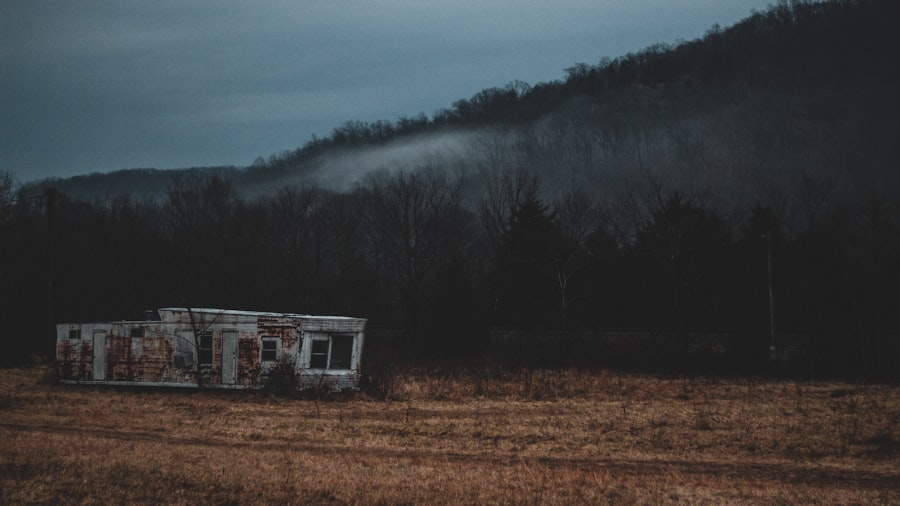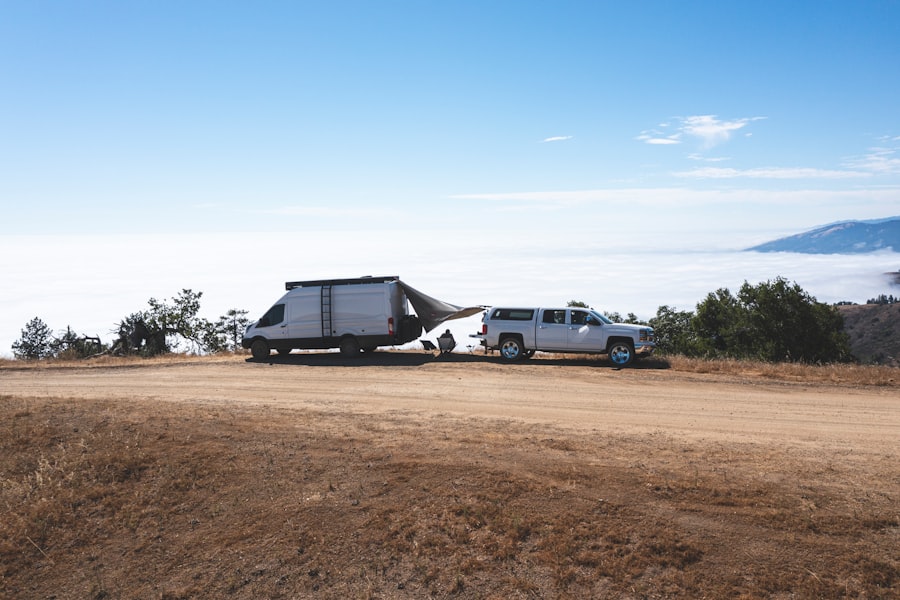Trailer homes, often referred to as mobile homes or manufactured homes, have gained popularity for a variety of reasons. One of the most significant advantages is affordability. Compared to traditional site-built homes, trailer homes typically come with a lower price tag, making them an attractive option for first-time buyers or those looking to downsize.
The cost savings extend beyond the initial purchase; trailer homes often have lower property taxes and utility costs, which can lead to substantial long-term savings. This financial accessibility allows individuals and families to invest in other areas of their lives, such as education or retirement savings. Another compelling benefit of trailer homes is their flexibility and mobility.
Unlike traditional homes, which are fixed in one location, many trailer homes can be relocated if necessary. This feature is particularly appealing for those who may need to move for work or personal reasons. Additionally, the ability to choose from various designs and layouts allows buyers to find a home that suits their specific needs and preferences.
Many modern trailer homes are designed with open floor plans and contemporary amenities, making them not only functional but also aesthetically pleasing. This blend of affordability and flexibility makes trailer homes an increasingly popular choice for a diverse range of homeowners.
Key Takeaways
- Trailer homes offer affordable and flexible living options with various benefits.
- Important factors before buying include location, size, and condition of the trailer home.
- Financing options are available, making trailer homes accessible to more buyers.
- Regular maintenance and upgrades can enhance comfort and value.
- Living in trailer parks fosters community but may come with unique challenges.
Factors to Consider Before Buying a Trailer Home
Before diving into the purchase of a trailer home, several critical factors must be taken into account. First and foremost is the location. The site where the trailer will be placed can significantly impact its value and livability.
Prospective buyers should consider proximity to essential services such as schools, healthcare facilities, grocery stores, and employment opportunities. Additionally, zoning regulations and land use policies in the area can affect whether a trailer home can be placed on a particular lot. Understanding these local regulations is crucial to avoid potential legal issues down the line.
Another important consideration is the condition of the trailer home itself. Buyers should conduct thorough inspections to assess the structural integrity, plumbing, electrical systems, and overall maintenance of the home. Many older models may require significant repairs or upgrades, which can add to the overall cost of ownership.
It’s also wise to consider the age of the trailer; newer models often come with modern features and better energy efficiency, which can lead to lower utility bills. Buyers should also evaluate whether they want a single-wide or double-wide model, as this choice will affect both space and price.
Finding Affordable Trailer Homes for Sale

Finding affordable trailer homes for sale requires a strategic approach and an understanding of where to look. Online platforms such as Zillow, Realtor.com, and specialized websites like MobileHome.net offer extensive listings of available properties across various regions. These platforms allow users to filter searches based on price, size, and location, making it easier to find a home that fits within budget constraints.
Additionally, local real estate agents who specialize in mobile homes can provide valuable insights and access to listings that may not be widely advertised. Another avenue for finding affordable trailer homes is through auctions or foreclosures. Many banks and financial institutions sell repossessed mobile homes at significantly reduced prices.
While purchasing through these channels may require more due diligence and potentially some renovation work, it can lead to substantial savings. Networking within local communities or joining online forums dedicated to mobile home living can also yield leads on available properties that may not be listed through traditional channels.
Financing Options for Trailer Homes
| Financing Option | Typical Interest Rate | Loan Term | Down Payment | Eligibility Requirements | Pros | Cons |
|---|---|---|---|---|---|---|
| Personal Loan | 6% – 36% | 1 – 7 years | None or low | Good credit score | No collateral needed, quick approval | Higher interest rates, shorter terms |
| Chattel Loan | 5% – 12% | 5 – 20 years | 10% – 20% | Credit check, trailer as collateral | Specifically for mobile homes, longer terms | Higher interest than mortgage, trailer depreciates |
| FHA Title I Loan | Variable, generally low | Up to 20 years | None or low | Meets FHA requirements | Government-backed, low down payment | Strict eligibility, limited loan amounts |
| Home Equity Loan | 3% – 8% | 5 – 30 years | Equity in existing home | Homeowner with equity | Lower interest rates, tax benefits | Risk of foreclosure, requires existing home |
| Manufacturer or Dealer Financing | 4% – 15% | 3 – 15 years | Varies | Credit approval | Convenient, may offer promotions | May have higher rates, limited negotiation |
Financing a trailer home can differ significantly from securing a mortgage for a traditional house. Many lenders offer specific loans tailored for manufactured homes, which can include personal loans or chattel loans. Chattel loans are particularly common for mobile homes that are not permanently affixed to land; they function similarly to auto loans and typically have shorter terms and higher interest rates.
Buyers should shop around for lenders who specialize in mobile home financing to find the best rates and terms available. Another option is to consider government-backed loans such as those offered by the Federal Housing Administration (FHA) or the U.S. Department of Agriculture (USDA).
FHA loans can be used for manufactured homes that meet certain criteria, including being placed on a permanent foundation. USDA loans are available for low- to moderate-income buyers in rural areas and can provide favorable terms for those looking to purchase a trailer home in less populated regions. Understanding these financing options is crucial for potential buyers as they navigate the complexities of securing funding for their new home.
Tips for Maintaining and Upgrading Your Trailer Home
Maintaining a trailer home requires regular attention to ensure its longevity and comfort. One of the most critical aspects of maintenance is keeping up with routine inspections of plumbing and electrical systems. Leaks or faulty wiring can lead to significant issues if not addressed promptly.
Regularly checking for signs of wear and tear on roofing materials is also essential; many trailer homes are susceptible to leaks due to their flat roofs. Investing in quality materials during repairs can prevent future problems and enhance the overall durability of the home. Upgrading a trailer home can significantly improve its value and livability.
Simple cosmetic changes such as repainting walls, updating flooring, or replacing outdated fixtures can create a fresh look without breaking the bank. More substantial upgrades might include enhancing insulation or installing energy-efficient windows, which can lead to lower heating and cooling costs over time. Homeowners should also consider outdoor improvements like landscaping or building decks, which not only enhance curb appeal but also create additional living space for relaxation or entertaining guests.
Community Living in Trailer Parks

Living in a trailer park offers a unique sense of community that many residents find appealing. These parks often foster close-knit relationships among neighbors, creating an environment where individuals look out for one another. Many parks organize community events such as potlucks, holiday celebrations, or game nights that encourage social interaction and camaraderie among residents.
This sense of belonging can be particularly beneficial for those who may feel isolated in more traditional housing situations. Moreover, trailer parks often provide amenities that enhance the quality of life for residents. Common features may include swimming pools, playgrounds, clubhouses, or fitness centers that promote an active lifestyle.
The shared spaces allow residents to engage with one another while enjoying recreational activities. Additionally, many parks have management teams that handle maintenance and security concerns, providing peace of mind for residents who may not have the resources or ability to manage these aspects independently.
Potential Challenges of Living in a Trailer Home
While there are numerous benefits to living in a trailer home, potential challenges exist that prospective buyers should consider carefully. One significant concern is depreciation; unlike traditional homes that typically appreciate over time, many mobile homes lose value as they age. This depreciation can make it difficult for owners to sell their homes later on or refinance if needed.
Understanding this aspect is crucial for anyone considering investing in a trailer home. Another challenge is the potential stigma associated with living in a mobile home community. Some individuals may hold preconceived notions about trailer parks being less desirable living situations, which can affect residents’ self-perception and social interactions outside their communities.
Additionally, zoning laws can limit where mobile homes can be placed, leading to challenges in finding suitable land or park options that meet personal preferences and lifestyle needs.
Making the Most of Your Budget-Friendly Trailer Home
Maximizing the potential of a budget-friendly trailer home involves creativity and resourcefulness. One effective strategy is to focus on multifunctional spaces within the home. For instance, utilizing furniture that serves dual purposes—such as a sofa bed or an ottoman with storage—can help optimize limited square footage while maintaining functionality.
Additionally, incorporating smart storage solutions like vertical shelving or under-bed storage can help keep living areas organized without sacrificing style. Personalizing the space is another way to enhance enjoyment of a trailer home without incurring significant costs. Simple DIY projects such as creating accent walls with paint or removable wallpaper can add character without permanent alterations.
Engaging in gardening or outdoor decor projects can also transform outdoor spaces into inviting areas for relaxation or entertainment. By embracing creativity and resourcefulness, residents can turn their budget-friendly trailer homes into comfortable havens that reflect their unique tastes and lifestyles.



